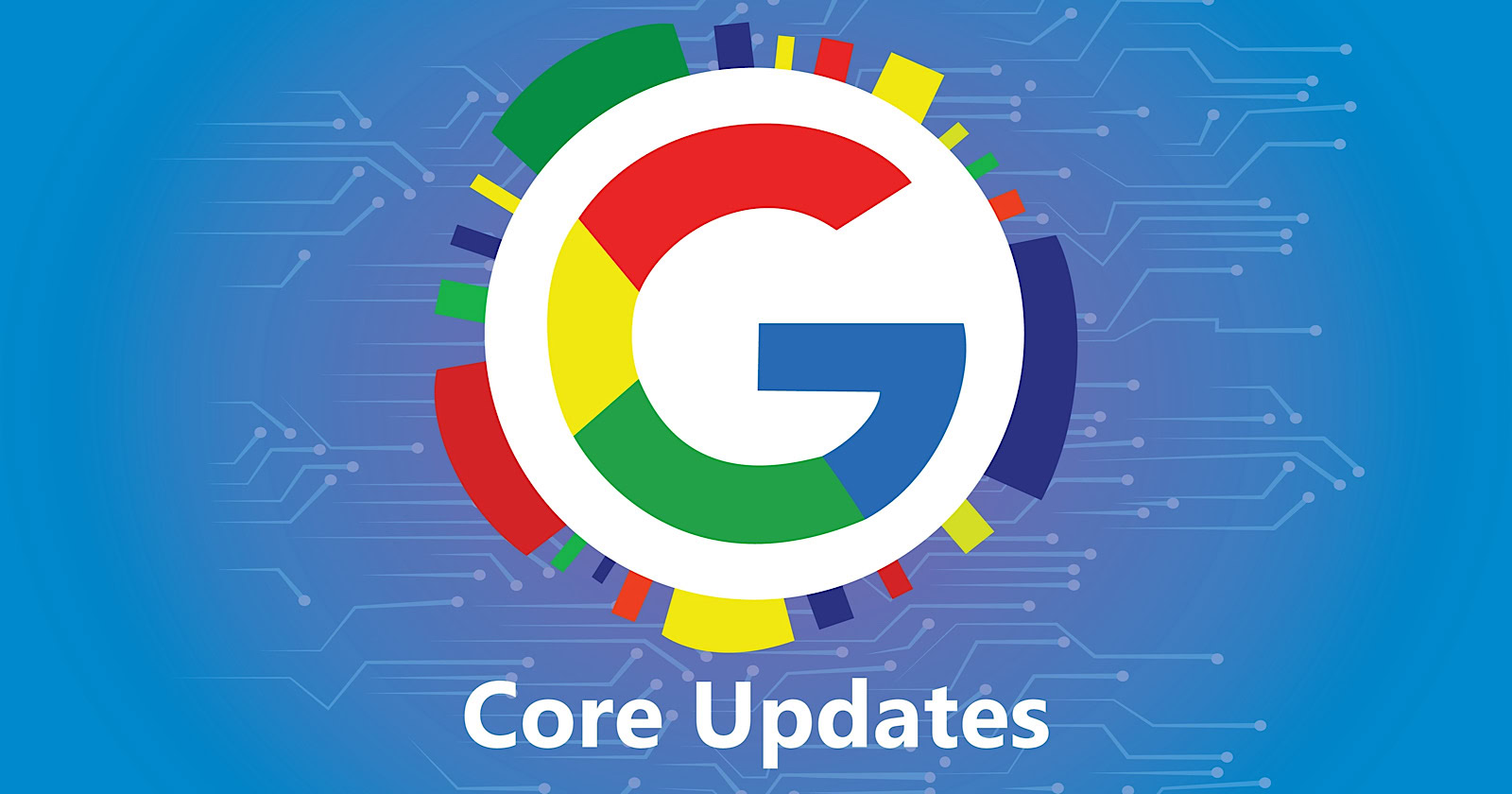SEO
4 Backlink Outreach Ideas You Can Pitch To Webmasters

What to Pitch In Backlink Outreach?
If you have NEVER gotten replies for the hundreds or thousands of emails you have sent to webmasters, this guide is for you. Here is how we build backlinks effectively.
If you’re trying to jumpstart your SEO and looking for ways to do it, link building is surely something that has crossed your mind. The thing about it, though, is it’s not as easy as you want it to be.
Link building is an SEO strategy to get other websites to link to your page. And it’s one of the most popular strategies out there because it works. Getting quality backlinks from authoritative websites is a significant factor if you want to rank competitively it sends positive authority signals to Google.
Getting backlinks is not something you can satisfyingly master the first time around. This is because most people can’t even get past one of the early, yet most important, stages of link building – webmaster outreach.
How do you do Backlink Outreach?
I previously provided a guide on how to start an outreach campaign. But, when it comes to link building, it’s crucial to have something to offer to the webmasters you’re reaching out to. Beyond a well-written email, you have to convince them why they should be linking to your page.
It’s also important to note that webmasters probably get a bunch of outreach emails every single day. This is why you should have something new and unique to bring to the table. At the end of the day, the question you should be asking yourself before you hit the send button to your outreach emails is: How can I add more value to this website?
If you’re struggling to figure out an answer to this question, you’ve come to the right place! Here are some content ideas that can bring a significant contribution to a webmaster’s site:
-
Expert roundups are commonly done to provide a comprehensive article to readers on a certain topic by gathering information from various sources.
There are usually two ways to do it. The first is to reach out to industry experts to share their insights, opinions, and/or experiences about or relating to your chosen topic. And the second is to do your own research and dig up the most valuable information you can find on the internet. Click here for a definitive guide to writing roundups like this.
This link building strategy makes your job a bit easier because you’re hitting two birds with one stone – you’re creating content for your website and prospecting webmasters to reach out to at the same time.
Two things you have to keep in mind when finding sources for your roundups: they have to be credible and active. This way, you’re giving reliable information to your readers.
Here’s a roundup article I wrote way back about SEO horror stories.

In the article, I reached out to other SEO professionals to know about their worst SEO experiences. Getting ten answers already gave me ten websites to link to and, potentially, ten backlinks as well.
Taking this route also allows you to build new or strengthen existing partnerships with people in the industry. This makes link building opportunities continuously open for you.
-
Offer Your Media Content
One of the things that make a blog post engaging is good media content. Reading informational articles can be a bit intimidating for many people. Topics like SEO can be too technical which makes it hard to follow for beginners.
What I usually do to make complicated information digestible is to make a visual representation of my discussion. Here’s an example of how I explained technical SEO with the use of an infographic.
Infographics are a reliable way to break down complex points into easy-to-follow images. It works best if you’re trying to discuss charts, statistics, flows, timelines, and other quantitative information.
Here’s an infographic my team and I made to show the progression of Google’s algorithm updates throughout the years.

When media content such as infographic serves a useful purpose to its readers, then it’s definitely worth sharing with webmasters. All you have to do is look for articles talking about the same or related topic; in this case, I’d look for those explaining or reviewing Google algorithm updates. Offer your existing media content to be added to their article to make their content more engaging.
Note that you can do this to any type of media. If you have a Youtube channel and have been posting good informational videos, you can also offer them to be used by webmasters. Getting a backlink and Youtube views at the same time is a win-win situation you should take, after all.
-
Produce Reaction or Commentary Articles
Do you know that 4.4 million blogs are being published daily? This means that millions of new content are being put out there for the world to see. You’re not gonna be able to read every single one of them, but some are gonna cause a buzz.
For example, SEO is driven by content. So, there are countless SEO articles that I come across on a daily basis. Some of my favorite SEO-related content to read are experiments and case studies. I enjoy seeing how other SEO professionals figure out and refine strategies to make their websites rank better.
Now, what can you do with these types of content? You can either agree, disagree, or simply put their findings into practice to see if they work and react to them.
I did this to one of the biggest marketing experts when I was writing about a guide to guest posting. Here’s a snippet:

Neil Patel often has some hot takes on digital marketing strategies and they make sense. In my article, I shared and agreed with Neil’s views on guest posting because, like him, I also have my fair share of successful guest posting experiences. It worked for him and so I and so it’s worth sharing with you, my reader, as well.
-
Make a Resource Article
It’s always important to create informational content on your website and this is mostly true for SEO. If you’re producing content that is useful to your readers, you can gain valuable traffic to your website and make your expertise clearer to Google.
With unique and insightful content, it will be easier for webmasters to link to your site because it will add value to theirs too.
Take this blog I wrote about fixing errors in Google Search Console’s Coverage tab as an example.

Google Search Console (GSC) is an essential tool in making sure that your website is being indexed properly by Google. It works by showing indexing errors and warning that certain pages are flagged for so you can fix them.
There are different errors that cause a page to not be indexed by Google and some of these are technical, so I explained the common GSC errors one by one and shared how to fix them.
This is the type of content beginners are looking for when they start dealing with SEO. At the same time, this is the type of content that can act as supplemental information for other webmasters when they write about related topics.
This is what Semrush did for their article on conducting an SEO audit.

When discussing how to find URLs excluded in Google’s indexing, they referred their readers to my blog to understand and learn about addressing problems in indexing.
If you’ve written blogs that are informational in nature, make sure that they’re accurate and accessible, then you can share them with webmasters to make their content richer.
Key Takeaway
Acquiring backlinks is not an easy job, especially if you want to get them from high-quality and authoritative websites. You might think that your chances for a quality backlink are low, especially if you’re just starting out.
However, I would argue that what you’re pitching to webmasters is what makes or breaks an outreach campaign. From roundups to resource articles, providing solid content for webmasters to work with is a great start in backlink outreach.
Do you have more backlink outreach ideas to share? Comment down below and share your experiences with them!
SEO
Google March 2024 Core Update Officially Completed A Week Ago

Google has officially completed its March 2024 Core Update, ending over a month of ranking volatility across the web.
However, Google didn’t confirm the rollout’s conclusion on its data anomaly page until April 26—a whole week after the update was completed on April 19.
Many in the SEO community had been speculating for days about whether the turbulent update had wrapped up.
The delayed transparency exemplifies Google’s communication issues with publishers and the need for clarity during core updates
Google March 2024 Core Update Timeline & Status
First announced on March 5, the core algorithm update is complete as of April 19. It took 45 days to complete.
Unlike more routine core refreshes, Google warned this one was more complex.
Google’s documentation reads:
“As this is a complex update, the rollout may take up to a month. It’s likely there will be more fluctuations in rankings than with a regular core update, as different systems get fully updated and reinforce each other.”
The aftershocks were tangible, with some websites reporting losses of over 60% of their organic search traffic, according to data from industry observers.
The ripple effects also led to the deindexing of hundreds of sites that were allegedly violating Google’s guidelines.
Addressing Manipulation Attempts
In its official guidance, Google highlighted the criteria it looks for when targeting link spam and manipulation attempts:
- Creating “low-value content” purely to garner manipulative links and inflate rankings.
- Links intended to boost sites’ rankings artificially, including manipulative outgoing links.
- The “repurposing” of expired domains with radically different content to game search visibility.
The updated guidelines warn:
“Any links that are intended to manipulate rankings in Google Search results may be considered link spam. This includes any behavior that manipulates links to your site or outgoing links from your site.”
John Mueller, a Search Advocate at Google, responded to the turbulence by advising publishers not to make rash changes while the core update was ongoing.
However, he suggested sites could proactively fix issues like unnatural paid links.
“If you have noticed things that are worth improving on your site, I’d go ahead and get things done. The idea is not to make changes just for search engines, right? Your users will be happy if you can make things better even if search engines haven’t updated their view of your site yet.”
Emphasizing Quality Over Links
The core update made notable changes to how Google ranks websites.
Most significantly, Google reduced the importance of links in determining a website’s ranking.
In contrast to the description of links as “an important factor in determining relevancy,” Google’s updated spam policies stripped away the “important” designation, simply calling links “a factor.”
This change aligns with Google’s Gary Illyes’ statements that links aren’t among the top three most influential ranking signals.
Instead, Google is giving more weight to quality, credibility, and substantive content.
Consequently, long-running campaigns favoring low-quality link acquisition and keyword optimizations have been demoted.
With the update complete, SEOs and publishers are left to audit their strategies and websites to ensure alignment with Google’s new perspective on ranking.
Core Update Feedback
Google has opened a ranking feedback form related to this core update.
You can use this form until May 31 to provide feedback to Google’s Search team about any issues noticed after the core update.
While the feedback provided won’t be used to make changes for specific queries or websites, Google says it may help inform general improvements to its search ranking systems for future updates.
Google also updated its help documentation on “Debugging drops in Google Search traffic” to help people understand ranking changes after a core update.
Featured Image: Rohit-Tripathi/Shutterstock
FAQ
After the update, what steps should websites take to align with Google’s new ranking criteria?
After Google’s March 2024 Core Update, websites should:
- Improve the quality, trustworthiness, and depth of their website content.
- Stop heavily focusing on getting as many links as possible and prioritize relevant, high-quality links instead.
- Fix any shady or spam-like SEO tactics on their sites.
- Carefully review their SEO strategies to ensure they follow Google’s new guidelines.
SEO
Google Declares It The “Gemini Era” As Revenue Grows 15%

Alphabet Inc., Google’s parent company, announced its first quarter 2024 financial results today.
While Google reported double-digit growth in key revenue areas, the focus was on its AI developments, dubbed the “Gemini era” by CEO Sundar Pichai.
The Numbers: 15% Revenue Growth, Operating Margins Expand
Alphabet reported Q1 revenues of $80.5 billion, a 15% increase year-over-year, exceeding Wall Street’s projections.
Net income was $23.7 billion, with diluted earnings per share of $1.89. Operating margins expanded to 32%, up from 25% in the prior year.
Ruth Porat, Alphabet’s President and CFO, stated:
“Our strong financial results reflect revenue strength across the company and ongoing efforts to durably reengineer our cost base.”
Google’s core advertising units, such as Search and YouTube, drove growth. Google advertising revenues hit $61.7 billion for the quarter.
The Cloud division also maintained momentum, with revenues of $9.6 billion, up 28% year-over-year.
Pichai highlighted that YouTube and Cloud are expected to exit 2024 at a combined $100 billion annual revenue run rate.
Generative AI Integration in Search
Google experimented with AI-powered features in Search Labs before recently introducing AI overviews into the main search results page.
Regarding the gradual rollout, Pichai states:
“We are being measured in how we do this, focusing on areas where gen AI can improve the Search experience, while also prioritizing traffic to websites and merchants.”
Pichai reports that Google’s generative AI features have answered over a billion queries already:
“We’ve already served billions of queries with our generative AI features. It’s enabling people to access new information, to ask questions in new ways, and to ask more complex questions.”
Google reports increased Search usage and user satisfaction among those interacting with the new AI overview results.
The company also highlighted its “Circle to Search” feature on Android, which allows users to circle objects on their screen or in videos to get instant AI-powered answers via Google Lens.
Reorganizing For The “Gemini Era”
As part of the AI roadmap, Alphabet is consolidating all teams building AI models under the Google DeepMind umbrella.
Pichai revealed that, through hardware and software improvements, the company has reduced machine costs associated with its generative AI search results by 80% over the past year.
He states:
“Our data centers are some of the most high-performing, secure, reliable and efficient in the world. We’ve developed new AI models and algorithms that are more than one hundred times more efficient than they were 18 months ago.
How Will Google Make Money With AI?
Alphabet sees opportunities to monetize AI through its advertising products, Cloud offerings, and subscription services.
Google is integrating Gemini into ad products like Performance Max. The company’s Cloud division is bringing “the best of Google AI” to enterprise customers worldwide.
Google One, the company’s subscription service, surpassed 100 million paid subscribers in Q1 and introduced a new premium plan featuring advanced generative AI capabilities powered by Gemini models.
Future Outlook
Pichai outlined six key advantages positioning Alphabet to lead the “next wave of AI innovation”:
- Research leadership in AI breakthroughs like the multimodal Gemini model
- Robust AI infrastructure and custom TPU chips
- Integrating generative AI into Search to enhance the user experience
- A global product footprint reaching billions
- Streamlined teams and improved execution velocity
- Multiple revenue streams to monetize AI through advertising and cloud
With upcoming events like Google I/O and Google Marketing Live, the company is expected to share further updates on its AI initiatives and product roadmap.
Featured Image: Sergei Elagin/Shutterstock
SEO
brightonSEO Live Blog

Hello everyone. It’s April again, so I’m back in Brighton for another two days of Being the introvert I am, my idea of fun isn’t hanging around our booth all day explaining we’ve run out of t-shirts (seriously, you need to be fast if you want swag!). So I decided to do something useful and live-blog the event instead.
Follow below for talk takeaways and (very) mildly humorous commentary. sun, sea, and SEO!
-
SEARCHENGINES7 days ago
Daily Search Forum Recap: April 19, 2024
-

 WORDPRESS6 days ago
WORDPRESS6 days ago13 Best HubSpot Alternatives for 2024 (Free + Paid)
-

 WORDPRESS7 days ago
WORDPRESS7 days ago7 Best WooCommerce Points and Rewards Plugins (Free & Paid)
-

 MARKETING6 days ago
MARKETING6 days agoBattling for Attention in the 2024 Election Year Media Frenzy
-

 MARKETING6 days ago
MARKETING6 days agoAdvertising in local markets: A playbook for success
-

 SEO7 days ago
SEO7 days agoGoogle Answers Whether Having Two Sites Affects Rankings
-

 SEARCHENGINES6 days ago
SEARCHENGINES6 days agoGoogle Core Update Flux, AdSense Ad Intent, California Link Tax & More
-

 AFFILIATE MARKETING6 days ago
AFFILIATE MARKETING6 days agoGrab Microsoft Project Professional 2021 for $20 During This Flash Sale




![The Current State of Google’s Search Generative Experience [What It Means for SEO in 2024] person typing on laptop with](https://articles.entireweb.com/wp-content/uploads/2024/04/The-Current-State-of-Googles-Search-Generative-Experience-What-It.webp-400x240.webp)
![The Current State of Google’s Search Generative Experience [What It Means for SEO in 2024] person typing on laptop with](https://articles.entireweb.com/wp-content/uploads/2024/04/The-Current-State-of-Googles-Search-Generative-Experience-What-It.webp-80x80.webp)










You must be logged in to post a comment Login